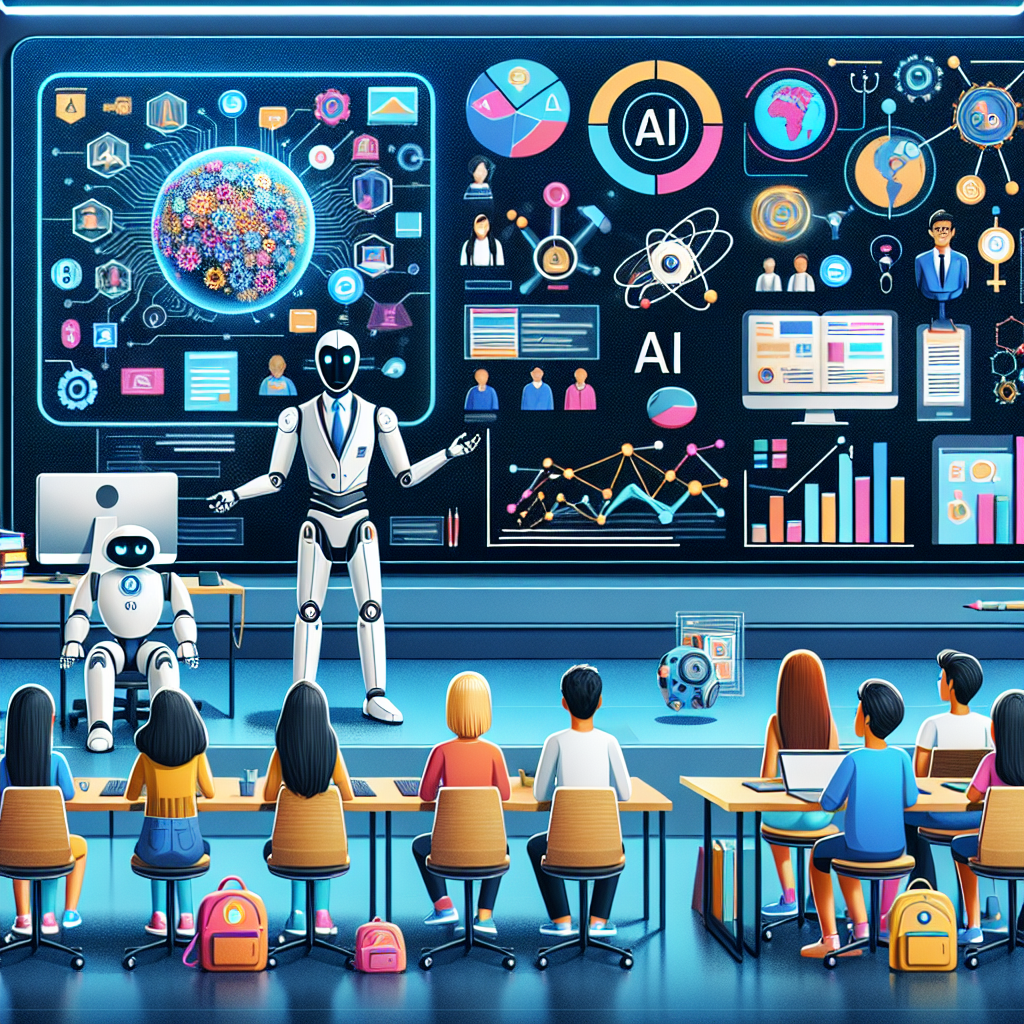In recent years, artificial intelligence (AI) has been making significant strides in various industries, including education. One area where AI is having a major impact is in content creation for educational purposes. AI-driven content creation is revolutionizing the way educational materials are developed, delivered, and consumed. In this article, we will explore the role of AI in content creation for education and its potential benefits and challenges.
AI-driven content creation in education involves using machine learning algorithms and natural language processing to generate and customize educational materials such as textbooks, quizzes, tutorials, and assessments. This technology has the ability to analyze large amounts of data, identify patterns, and generate personalized content for individual learners based on their preferences, learning styles, and performance.
One of the key benefits of AI-driven content creation in education is its ability to personalize learning experiences for students. By analyzing student data and behavior, AI can create customized learning materials that cater to the specific needs and interests of each student. This personalized approach to content creation can help improve student engagement, motivation, and learning outcomes.
AI-driven content creation also has the potential to save time and resources for educators. By automating the process of creating educational materials, AI can help teachers focus on other important tasks such as providing feedback, mentoring students, and facilitating discussions. This can lead to more efficient and effective teaching practices.
Another benefit of AI-driven content creation in education is its ability to adapt to the changing needs of students and the evolving landscape of education. AI can quickly generate and update content to address emerging trends, new technologies, and changing curriculum requirements. This flexibility can help educators stay ahead of the curve and provide students with up-to-date and relevant educational materials.
Despite its many benefits, AI-driven content creation in education also presents some challenges. One of the main concerns is the potential for bias in the content generated by AI algorithms. Since AI relies on data to make decisions, there is a risk that biases present in the data could be reflected in the content created. This could lead to inaccurate or misleading information being presented to students, which could have negative implications for their learning.
Another challenge of AI-driven content creation in education is the issue of privacy and data security. AI algorithms require access to large amounts of data in order to generate personalized content, which raises concerns about the privacy and security of student information. Educators and developers must take steps to ensure that student data is protected and used responsibly in the creation of AI-driven educational materials.
Despite these challenges, the potential of AI-driven content creation in education is vast. As technology continues to advance and improve, AI has the potential to revolutionize the way educational materials are created, delivered, and consumed. By harnessing the power of AI, educators can provide students with personalized, engaging, and relevant learning experiences that can help them succeed in school and beyond.
FAQs:
Q: How does AI-driven content creation work in education?
A: AI-driven content creation in education involves using machine learning algorithms and natural language processing to generate and customize educational materials such as textbooks, quizzes, tutorials, and assessments. These algorithms analyze student data and behavior to create personalized learning materials that cater to the specific needs and interests of each student.
Q: What are the benefits of AI-driven content creation in education?
A: Some of the key benefits of AI-driven content creation in education include personalized learning experiences for students, time and resource savings for educators, adaptability to changing educational needs, and improved learning outcomes for students.
Q: What are the challenges of AI-driven content creation in education?
A: Some of the challenges of AI-driven content creation in education include the potential for bias in the content generated by AI algorithms, privacy and data security concerns, and the need for educators and developers to ensure that student data is protected and used responsibly in the creation of AI-driven educational materials.
Q: How can educators harness the power of AI-driven content creation in education?
A: Educators can harness the power of AI-driven content creation in education by working with developers and technology experts to integrate AI algorithms into their teaching practices, providing feedback and guidance on the development of AI-driven educational materials, and ensuring that student data is protected and used responsibly in the creation of AI-driven content.

